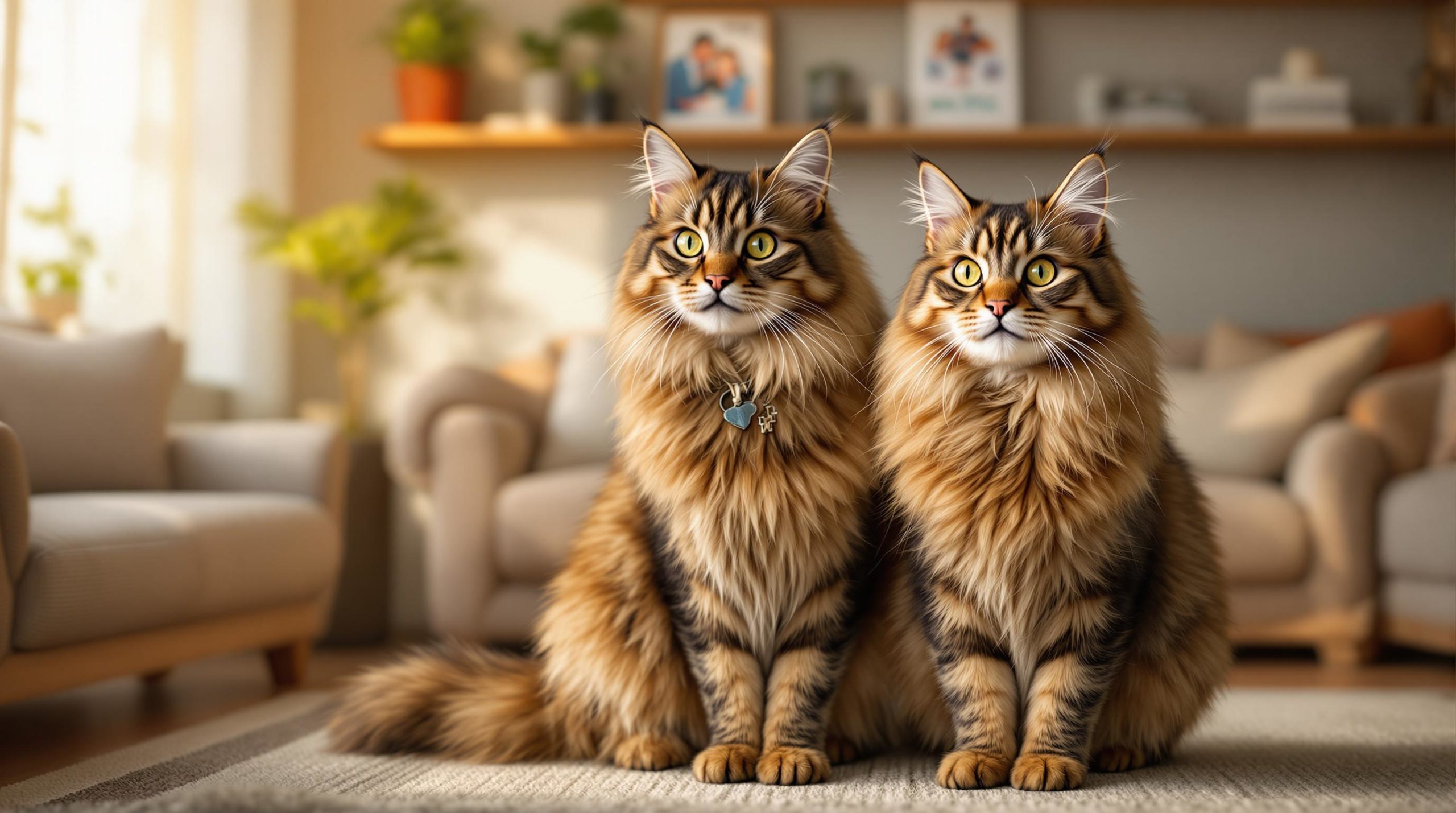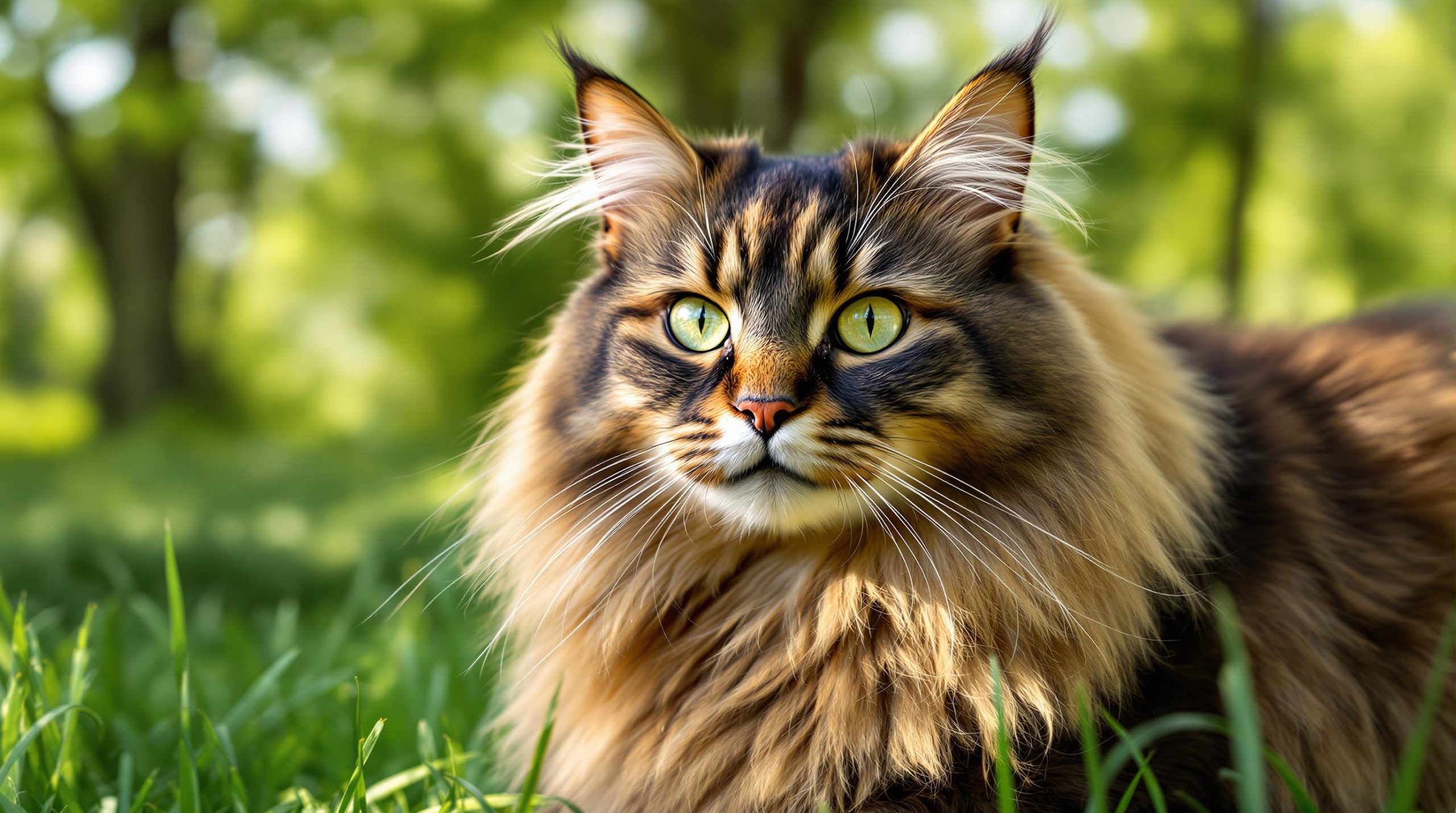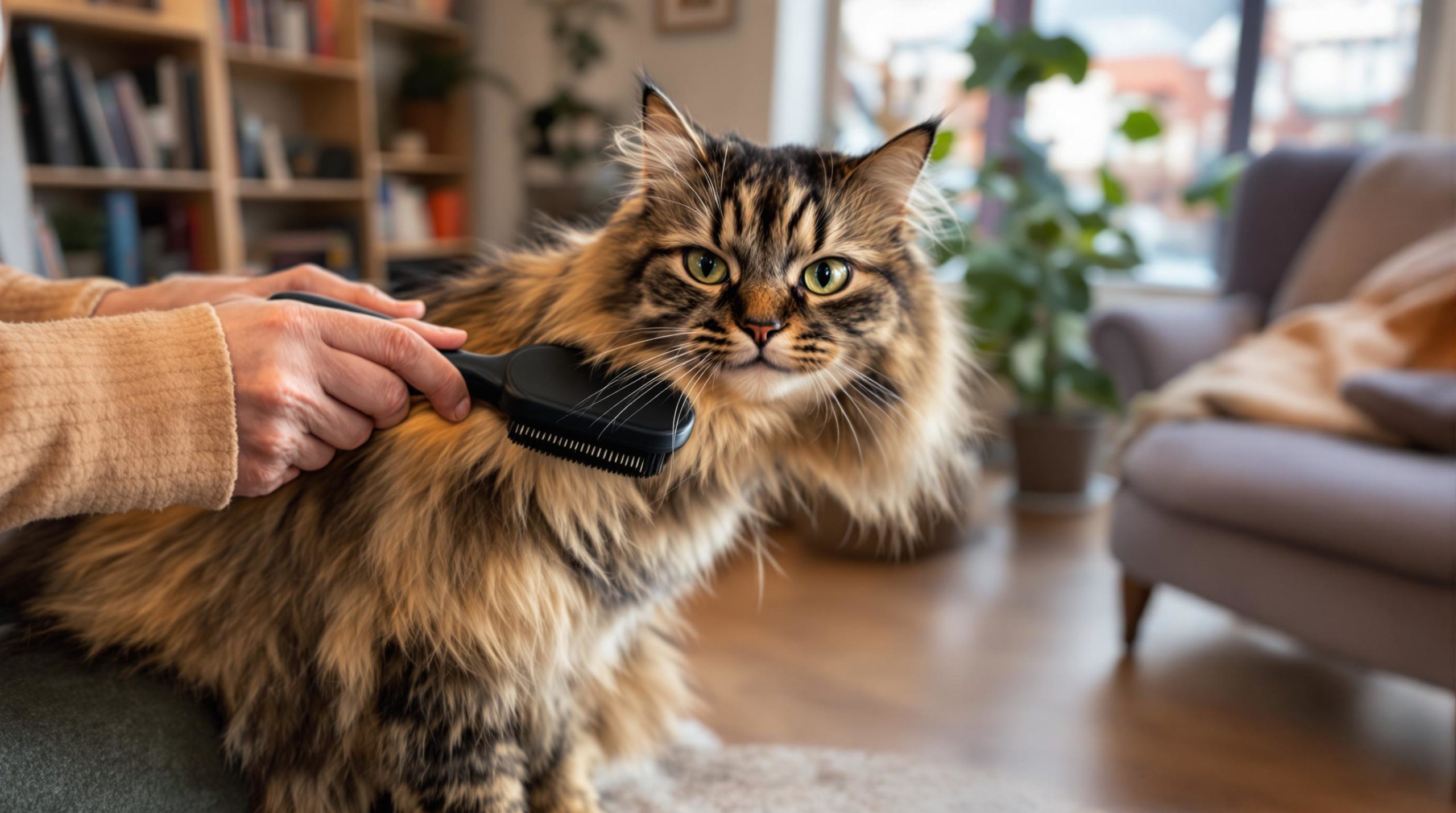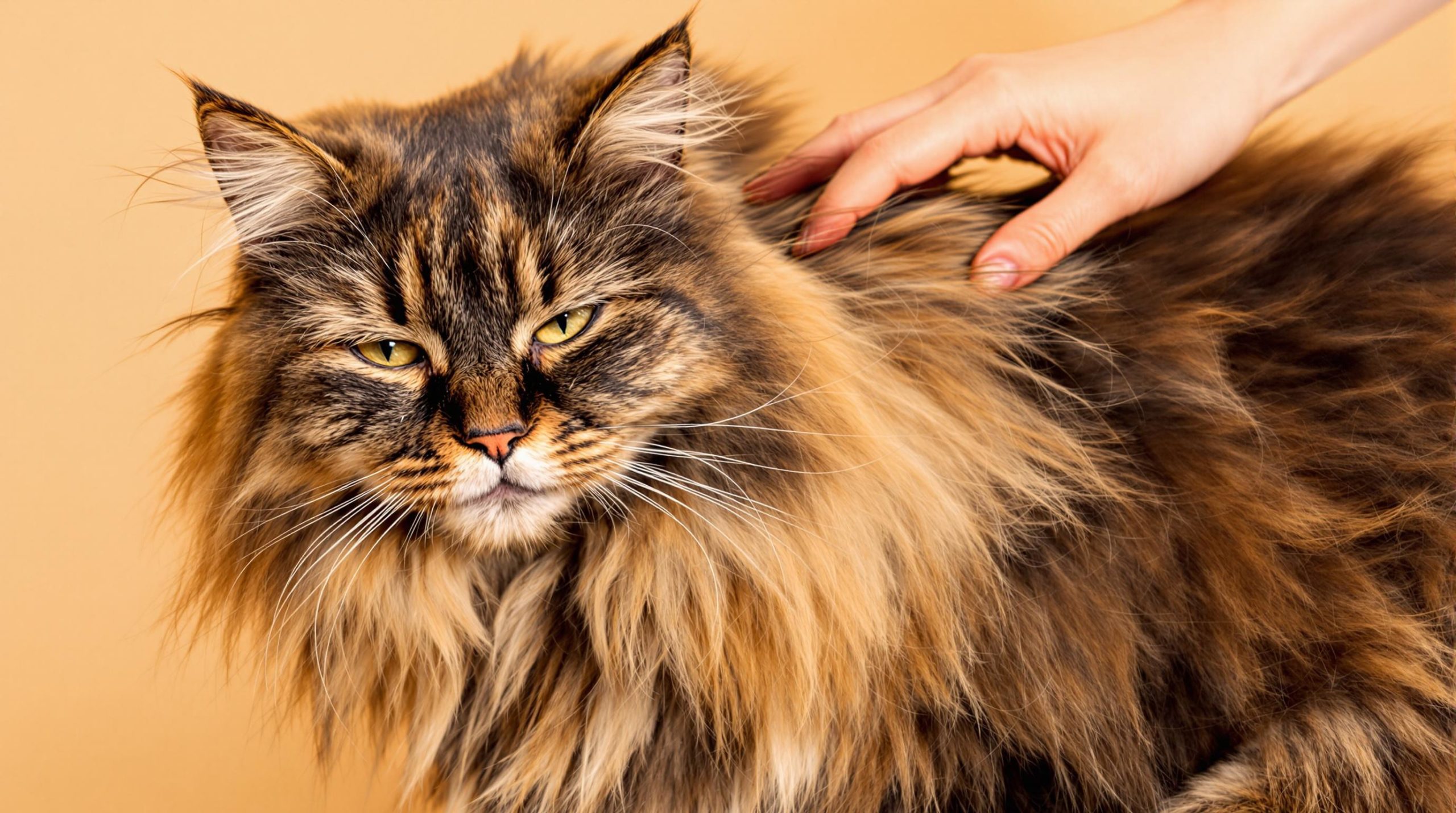Understanding common health problems in Maine Coons

The Maine Coon, renowned for its impressive size and gentle nature, is a beloved feline companion across the globe. Their luxurious coats and affectionate temperament make them a top choice for families and cat enthusiasts alike. However, as with all breeds, these majestic cats come with a specific set of health considerations that are crucial to understand for any responsible Maine Coon owner. Awareness about potential health problems, genetic predispositions, and preventive care strategies can make all the difference in ensuring your Maine Coon leads a long and vibrant life. This comprehensive overview sheds light on health issues unique to this breed, while also providing guidance drawn from trusted organizations like the Maine Coon Health Foundation and VCA Animal Hospitals. Adequate nutrition, routine veterinary visits, and attentive grooming are all key pillars in maintaining the well-being of these remarkable felines.
Key Genetic Health Concerns Affecting Maine Coon Cats
One cannot discuss Maine Coon health without addressing the genetic factors that shape their susceptibility to certain diseases. Among these, Hypertrophic Cardiomyopathy (HCM) stands out as the most prevalent hereditary condition affecting this breed. HCM is a heart disease characterized by thickening of the heart muscle walls, which compromises the heart’s ability to pump blood effectively. This can result in congestive heart failure or sudden cardiac death if left undiagnosed and untreated. The Maine Coon Health Foundation and Veterinary Partner stress the critical importance of regular screening, especially for breeding cats, to minimize passing this condition to future generations.
In addition to HCM, hip dysplasia is another genetic issue that frequently arises within the Maine Coon population. Unlike in dogs, where hip dysplasia is well known, it is somewhat under-recognized in cats, yet equally impactful. This condition involves an abnormal formation of the hip joint, leading to pain, limited mobility, and eventually arthritis. Given the large stature of Maine Coons, the extra weight can exacerbate any joint issues, making early diagnosis through radiographic screening indispensable.
Furthermore, Spinal Muscular Atrophy (SMA) affects the neurological system and leads to progressive muscle weakness and atrophy. Though it is not painful, the loss of muscle function significantly impacts quality of life. According to the Feline Health Center, DNA testing can reliably detect SMA carriers, enabling responsible breeders to avoid producing affected kittens.
Lastly, Polycystic Kidney Disease (PKD) is a less common but noteworthy concern. PKD causes cystic growth within the kidneys, deteriorating renal function over time. Although more prevalent in Persian cats, cases have been documented within Maine Coons as well. Regular veterinary checks and genetic testing are vital to monitor kidney health and catch early signs of dysfunction.
| Genetic Health Issue | Description | Common Symptoms | Recommended Screening |
|---|---|---|---|
| Hypertrophic Cardiomyopathy (HCM) | Thickening of the heart muscle walls, leading to heart pumping impairment | Breathing difficulties, lethargy, sudden collapse | Annual echocardiograms, genetic testing for responsible breeding |
| Hip Dysplasia | Improper development of the hip joint causing arthritis and pain | Limping, reluctance to jump, stiffness | X-rays, behavioral observation |
| Spinal Muscular Atrophy (SMA) | Neurological disorder causing muscle weakness and atrophy | Weakness in hind legs, difficulty walking | DNA testing of breeders and kittens |
| Polycystic Kidney Disease (PKD) | Cystic growth in kidneys leading to chronic kidney failure | Increased thirst, weight loss, poor coat condition | Ultrasound, genetic screening |

Recognizing and Managing Obesity and Related Health Risks in Maine Coons
Obesity is an often overlooked yet widespread problem among Maine Coons, largely due to their impressive size and appetite. While their large frame predisposes them to carrying extra weight, unchecked obesity can act as a catalyst for a host of secondary health problems including diabetes mellitus, hepatic lipidosis, and exacerbation of joint diseases like hip dysplasia. According to sources such as PetMD and the ASPCA, about a third of domestic cats are overweight, and Maine Coons are no exception.
Owners must recognize subtle signs of weight gain and act proactively to mitigate obesity risks:
- Monitoring weight regularly through veterinary visits or home scales
- Controlling portion sizes with a meal plan based on high-quality protein and low carbohydrates, aligning with recommendations from Royal Canin and Purina Pro Plan specialized feline diets
- Encouraging daily exercise using interactive toys and climbing structures like cat trees to keep them active
- Limiting treats and table scraps that contribute empty calories
Exercise contributes not only to weight control but also supports mental health by reducing boredom and stress. Maine Coons thrive on stimulating activities that tap into their natural curiosity and playful instincts. Simple play sessions involving feather toys or laser pointers can greatly improve physical condition and prevent obesity-related complications.
Given the multifaceted nature of obesity, collaboration with veterinary professionals is vital. VCA Animal Hospitals recommends periodic wellness exams to track body condition scores and metabolic health markers. When necessary, veterinarians may also recommend weight loss diets or medical interventions tailored to specific cat needs.
| Obesity-Related Health Issue | Effects | Preventive Strategies |
|---|---|---|
| Diabetes Mellitus | Disrupted blood sugar regulation leading to thirst, urination, and weight loss | Balanced diet, weight management, regular vet checkups |
| Hepatic Lipidosis | Fatty liver disease caused by obesity and poor diet | Prevent rapid weight loss, encourage eating, proper nutrition |
| Joint Problems (e.g., arthritis) | Increased stress on joints resulting in pain and mobility issues | Maintain healthy weight, physical activity, medication if needed |
Preventive Care Practices to Safeguard Maine Coon Health
Prevention reigns supreme when it comes to maintaining the health of Maine Coons. Routine veterinary care coupled with mindful lifestyle arrangements forms the foundation of a thriving Maine Coon’s wellness plan.
Essential preventive measures include:
- Regular veterinary check-ups: Early detection is key; schedule comprehensive check-ups at least annually to catch emerging health issues.
- Vaccinations: Keeping vaccinations updated protects against common infectious diseases affecting cats worldwide, as advised by the ASPCA.
- Dental hygiene: Brushing teeth regularly prevents periodontal disease, a common but often neglected feline health risk.
- Parasite control: Use safe, vet-approved flea, tick, and worm preventatives to eliminate parasitic threats.
- Environmental enrichment: Providing a stimulating home environment reduces stress and behavioral problems, indirectly supporting overall health.
- Routine grooming: Regular brushing for their dense coat is crucial for preventing mats and hairballs, explained in detail at mainecoonlife.com
Maintaining a hygienic feeding area with clean water bowls and litter boxes further supports health. The collaboration between owners and veterinary professionals creates a safety net that guards against the progression of chronic diseases, enhancing lifespan and quality of life as noted by The Cat Fanciers’ Association and Veterinary Partner resources.
| Preventive Care Aspect | Purpose | Frequency |
|---|---|---|
| Veterinary Check-Ups | Detect early signs of illness and maintain overall health | At least once a year, more often for seniors |
| Vaccinations | Protect against viral and bacterial infections | Annually or per vet recommendation |
| Dental Care | Prevent gum disease and tooth decay | Daily brushing; professional cleanings as needed |
| Parasite Control | Reduce risk of fleas, ticks, and worms | Monthly or as prescribed |
| Grooming | Prevent matting and hairballs in thick coats | Weekly brushing |

Optimal Nutrition and Exercise Strategies for Maine Coon Longevity
Given the Maine Coon’s unique physiology and size, meeting nutritional needs with precision makes a major impact on their health trajectory. Their diet should be rich in high-quality protein from sources such as chicken, turkey, or fish, which promotes muscle development and maintenance. Low carbohydrate content helps reduce excessive weight gain and supports metabolic balance, as recommended by experts at Royal Canin and Purina Pro Plan.
Commercial diets aimed at Maine Coons often include joint supplements such as glucosamine and omega-3 fatty acids, designed to support skeletal health and reduce inflammation. For kittens and young adults, special formulations cater to growth phases and energy demands.
Exercise is equally critical for maintaining muscle tone and preventing obesity. Maine Coons thrive on activities that engage their natural hunting instincts and climbing abilities. Climbing trees, puzzle feeders, and interactive toys provide both physical and mental stimulation, which reflects in their overall demeanor and health.
- Feed high-protein, moderate-fat diets tailored for large breeds
- Incorporate meals with joint health supplements to support mobility
- Schedule daily play sessions involving agility and hunting games
- Use vertical spaces like cat trees and shelves to encourage movement
By attentively balancing diet and exercise, owners can enhance their Maine Coon’s lifespan significantly; for more on lifespan insights, readers can visit the dedicated coverage at mainecoonlife.com. Regular evaluations by veterinary professionals like those at VCA Animal Hospitals ensure nutritional adjustments keep pace with the cat’s aging process and health status.
| Nutrition/Exercise Focus | Benefit | Example Products/Activities |
|---|---|---|
| High-Quality Protein Diet | Maintains muscle mass and overall vitality | Royal Canin Maine Coon formula, Purina Pro Plan Focus |
| Joint Supplements | Supports hip joint health and reduces inflammation | Glucosamine, chondroitin, omega-3 fatty acid supplements |
| Interactive Play | Increases physical activity and mental engagement | Laser pointers, feather toys, climbing trees |
Essential Grooming and Hygiene Tips to Maintain Maine Coon Well-being
The dense, long fur of the Maine Coon demands careful and regular grooming to ensure coat health and comfort. Neglected coats can lead to matting, which causes painful pulling on the skin and can hide skin infections. Owners regularly advise brushing sessions at least once a week using a slicker brush or a metal comb as recommended on mainecoonlife.com. Such grooming rituals not only control shedding but strengthen the bond between pet and owner.
Routine nail trimming is another important aspect. Overgrown nails can catch on fabrics or furnishings and cause injury or stress during movement. Cleaning ears regularly with vet-approved products reduces wax build-up and the risk of infections.
Dental hygiene should not be underestimated. Plaque accumulation can lead to gingivitis or dental decay, which affect eating habits and overall health. Brushing a Maine Coon’s teeth several times a week or providing dental treats endorsed by VCA Animal Hospitals supports oral health.
- Brush coat weekly to avoid mats and tangles
- Trim nails every 2-4 weeks to maintain proper length
- Clean ears with a gentle solution weekly or biweekly
- Brush teeth multiple times per week or offer dental chews
Proper hygiene extends beyond grooming into environmental care. Fresh water should be available at all times, with bowls cleaned frequently to avoid bacterial growth. A clean litter box maintained daily supports urinary health and prevents behavioral issues. For Maine Coon health issues related to grooming, further reading is available at mainecoonlife.com.

| Grooming Task | Frequency | Purpose |
|---|---|---|
| Brushing | Weekly | Prevent hair matting, reduce shedding |
| Nail Trimming | Every 2-4 weeks | Maintain claw health, prevent injuries |
| Ear Cleaning | Weekly or biweekly | Prevent wax buildup and infections |
| Dental Care | Several times per week | Prevent plaque and dental diseases |
Frequently Asked Questions About Maine Coon Health
-
How often should Maine Coons be screened for hypertrophic cardiomyopathy?
It is recommended that Maine Coons undergo HCM screening via echocardiogram annually, especially if they are breeding cats, to detect early signs of heart muscle thickening.
-
What dietary considerations are important for managing Maine Coon obesity?
Maine Coons benefit from a high-protein, low-carbohydrate diet free from fillers. Feeding portion-controlled meals and avoiding excess treats help maintain a healthy weight.
-
Can grooming really influence a Maine Coon’s health?
Absolutely. Regular grooming prevents matting, reduces hairballs, and helps detect skin or ear infections early, contributing significantly to the cat’s wellbeing.
-
Is hip dysplasia common in all cat breeds or just Maine Coons?
Hip dysplasia occurs in multiple breeds but is more frequently documented in large breeds like Maine Coons, likely due to their size and genetic predispositions.
-
Where can I find reputable breeders who screen for genetic diseases?
Organizations such as The Cat Fanciers’ Association and Maine Coon Rescue advocate for responsible breeders who perform genetic testing. Always request health clearances before acquiring a kitten. More breeder insights can be found at mainecoonlife.com.